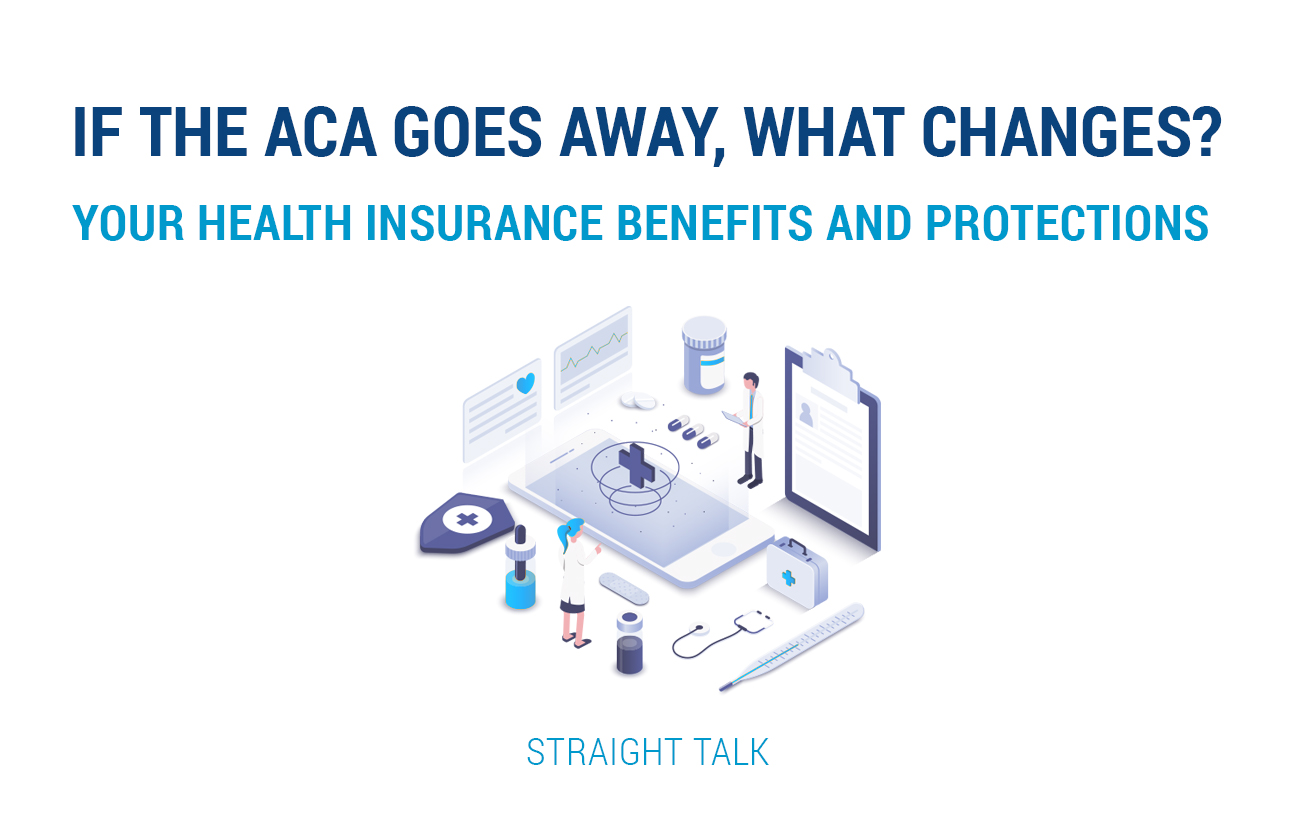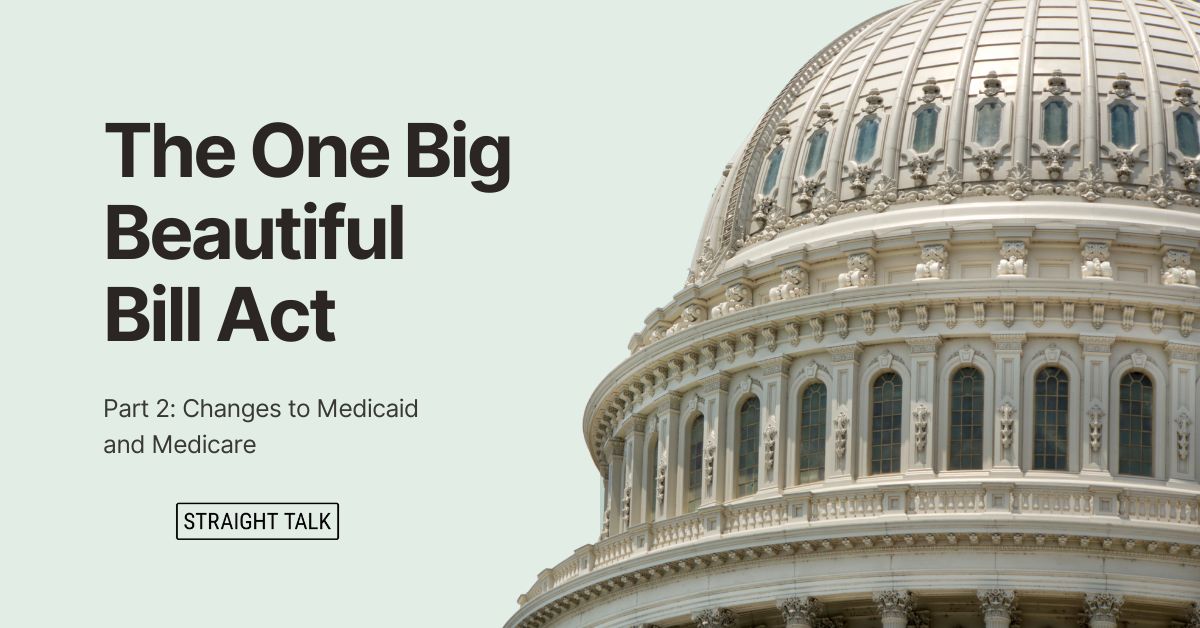PART 1: Your Health Insurance Benefits and Protections
I spend a ton of time out in public, doing presentations, speeches, interviews and compliance seminars and I get bombarded with questions about the healthcare topic du jour.
Frankly, I love this. It helps me stay in touch with people’s hopes and fears about their healthcare, and, more importantly, about PAYING for their healthcare.
The hot question the past few weeks goes like this:
Mike, didn’t a court just throw out Obamacare? What does that really mean for me?
THIS is a savvy, intelligent question I will be happy to answer. Like most solid healthcare questions, the answer will be long, messy and complicated. Fortunately, you have access to a person whose full-time job is trying to simplify healthcare.
Here’s what we’re gonna do – I’m going to write three short articles about what the United States would look like if the Affordable Care Act (ACA, Obamacare) just disappeared one day. It’s fitting we’re having this conversation now, since I first began studying the ACA this very month 10 years ago in Washington, D.C.
We’ll hit this in three phases:
- Will my health insurance benefits change?
- Will health insurance costs go up or down?
- Will people lose their coverage completely, and if yes, how many?
So, let’s hit Question 1 first: If the ACA goes away, will my health insurance benefits change?
To start, I’m going to lay out what the ACA requires your health insurance to do for you. I’m only going to talk about the things that were not at all in federal law before the ACA. To be fair, some states had some of these requirements before the ACA, but you could never be sure what you were going to get as you moved around. And, since Louisiana had almost none of them, our market changed drastically following the passage of the ACA.
First, let’s talk about kids.
When people have children, it’s vital for them to know their kids are covered in case of an emergency or illness. The last thing you want to worry about when you have a sick child is PAYING for treatment. The ACA mandated that all employer-based insurance keep kids covered until they turn 26 years old.
Since 90% of us with private insurance get it through work, this guaranteed a ton of kids continued their coverage through their parents’ jobs, with very little increase in costs for employers. As a parent of three 20-somethings, this one change has brought me a lot of peace of mind over the years. Without the ACA, all 50 states would have to pass their own bills to keep this benefit going. Or not.
In addition, for people who don’t get coverage through work, the ACA created the individual market via healthcare.gov. There, parents can get their kids covered without any consideration of the child’s health status. No medical questions asked. These policies are also heavily subsidized to make the premiums and deductibles very affordable if the household’s income is below about 300% of the Federal Poverty Level. I personally think the ACA’s designers dropped the ball on pricing kids’ coverage (it’s way more expensive than economics would suggest), but their hearts were in the right place.
Finally, the ACA expanded Medicaid to cover all members of any household, including kids, where the income level was at 138% of the Federal Poverty Level or below. Huge deal, especially for single-parent households.
So, we can see the ACA does a lot of things to help parents keep their children covered with health insurance. If the ACA goes away, all of the things I mentioned above are immediately at risk or just disappear. That’s a pretty big deal.
Second, let’s talk about benefits for everyone that the ACA requires.
Did you know your health insurance today, no matter how high your deductible is, is required to cover a long list of screenings, medications and counseling sessions for you at $0 out-of-pocket cost?
Yes, I said $0.
Even if you have a $5,000 deductible, you can still access certain healthcare services without paying anything. How did that happen?
The ACA provided funding and authority to a tiny, unknown federal agency called the >United States Preventive Services Task Force (USPSTF), and told them to study, analyze and grade every single wellness item imaginable – screening tools and services, health conditions and medications, etc. — and pluck out the things that are SO critical that they should be provided to everyone regardless of their ability to pay.
The USPSTF grades these services A, B, C, D, or I, depending on how critical they are. (The ACA REQUIRES your insurance to >cover all the As and Bs for $0.) They then communicate those services and grades to your insurance company, which builds them into your policy by federal order. >You can find the list for your Blue Cross preventive services here. If you are in a grandfathered plan, your list will be different, so note which one you have before you click a choice. Not sure? Ask your Human Resources representative.
For example, ALL the immunizations your doctor recommends for you, including annual flu shots, are considered either grade A or grade B, which means they are $0 cost to you when you get these shots from an in-network healthcare provider. That is directly because of the Affordable Care Act.
If you are a female of child-bearing age, you have access to contraceptives at $0 because of the grade A/B recommendations required under the ACA. Without the ACA, this is no longer required, and access to birth control for $0 could go away. (Note: Not every contraceptive is free, but at least one in every category must be $0 out of pocket.)
These are just a few of the 40+ items that the ACA requires insurance companies cover for you at $0.
Third, how about some benefits you don’t see every day?
Did you know that before the ACA was passed, you could easily run out of health insurance?
Before 2014, most policies had annual and lifetime limits on what they would pay for you. Employer policies that ran out after your insurance paid $1 million total (lifetime) were not unusual; it was all about what the employer was willing to pay. Individual policies with even lower limits were common.
But the ACA set a hard line: No annual limits and no lifetime limits. In other words, today, it is impossible to “run out of health insurance.” That’s because the ACA required it.
Some other things the ACA requires that we don’t think about very much:
- Limited waiting periods* — if they offer health insurance, employers have to guarantee coverage to their employees by the 90th day after hire.
- Lower -Hour Eligibility — the ACA requires larger employers (50+ full-time-equivalent (FTE) employees ) to offer coverage to 95% of their workforce that averages more than 30 work hours a week (not 40), or face large fines.
- Community Rating* — the ACA does not allow insurers to charge small companies extra because their workforce is very sick or uses more healthcare costs than average. All premiums must be based only on level of coverage and age.
- Affordability — larger employers (50+ FTE employees) have to offer their employees coverage that meets a federal standard for affordability (around a maximum 9.5% of income).
- Dependents — larger employers (50+ FTE employees) must offer coverage to their employees’ dependents, e.g. their children (note: Spouses are NOT considered dependents).
- Essential Health Benefits* — all health insurance must provide coverage in 10 categories the ACA defined as “essential” health benefits, including hospital, doctor, pharmacy, mental health, rehabilitative services and more.
- Premium Effectiveness — The ACA puts hard caps on the profit margins health insurance companies can make, requiring them to spend 80-85% of the money you pay in premiums ONLY on healthcare services.
* Grandfathered plans do not have to meet these ACA requirements. We still have some grandfathered plans, but there are fewer each year.
All of these things were put in place from coast to coast by the Affordable Care Act. They could disappear from the landscape if the ACA is shut down. Then, you will be at the mercy of your state for the protection of consumers in the health insurance marketplace.
Straight as I can make it! Stand by for Part 2!
Part 2: Will My Health Insurance Costs Go Up or Down?
Part 3: Will People Lose Coverage Completely?





why is the insurance cheaper for the same person working in Texas with Blue Cross there, than the same person working for a Louisiana based company using Blue cross of Louisiana
Erns! Thanks so much for your question!
It turns our there are many reasons why a policy issued by a Blue Cross plan can be priced differently from state to state. For example, Blue Cross of Texas is an entirely different company than Blue Cross of Louisiana. Blue Cross plans are a lot like franchises, and the Louisiana Health Indemnity Corporation owns the Louisiana Blue Cross franchise, while BCBSTX is an entirely different company.
Also, different states have different healthcare rules and regulations. The cost of healthcare (which drives 80-85% of premium pricing) is also different from state to state. The health of the population in Texas could be different from the average health in Louisiana.
Because healthcare, and health insurance, are priced based on the cost of healthcare locally, as you move from place to place the price can vary quite a bit.
In addition, since 2014 it has been illegal for health plans to base the cost of insurance on the actual health of the person applying, so the fact that it is the same person applying in both places has little to do with relative costs.
Hope that helps!….mrb